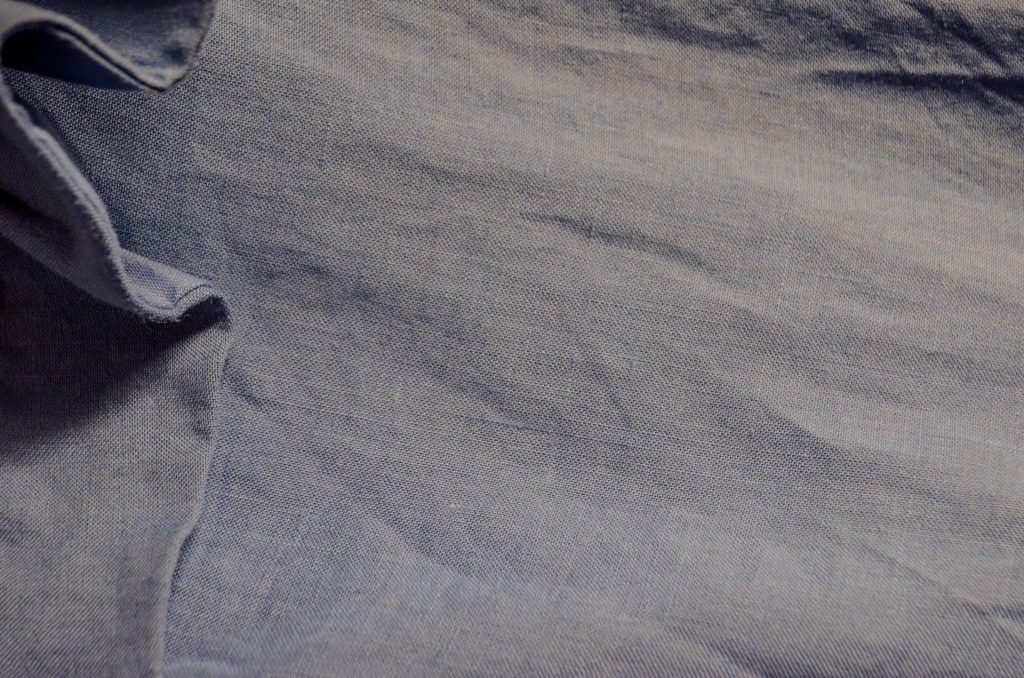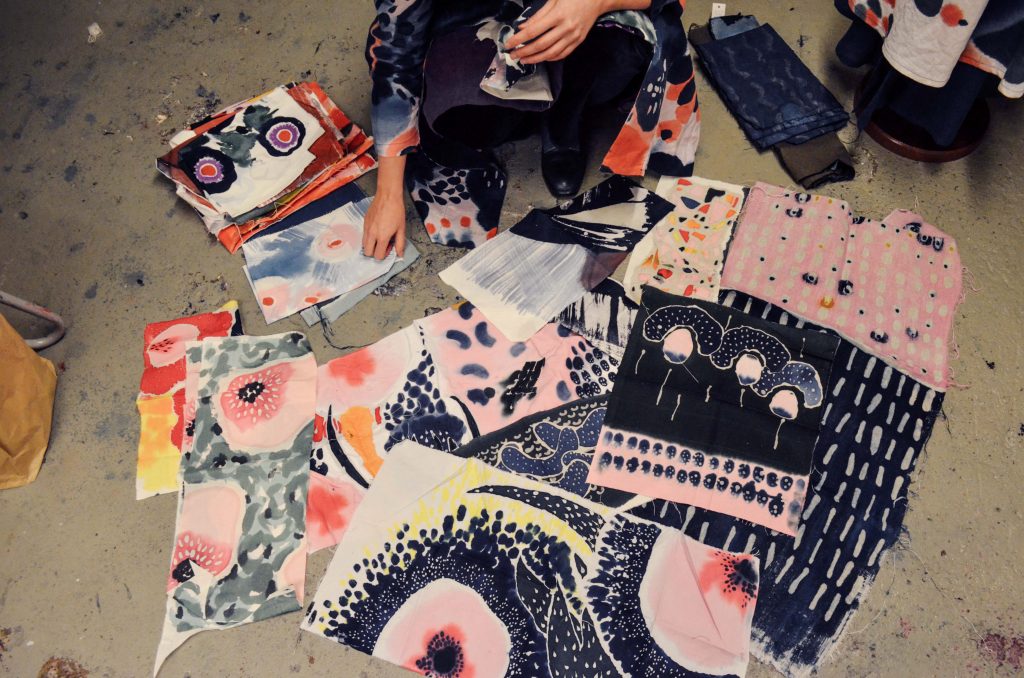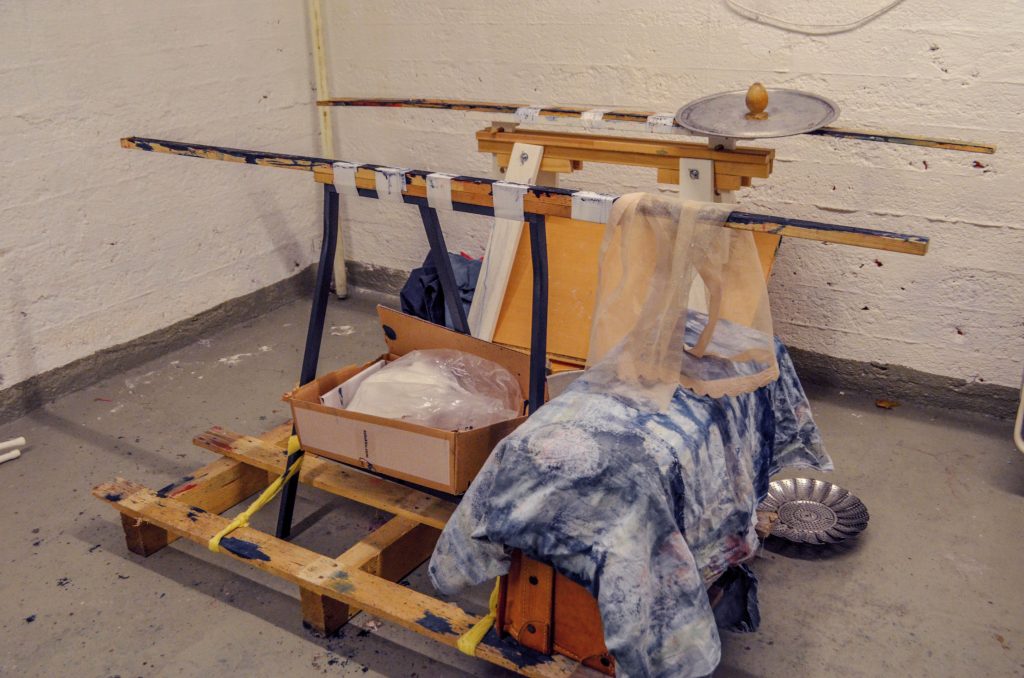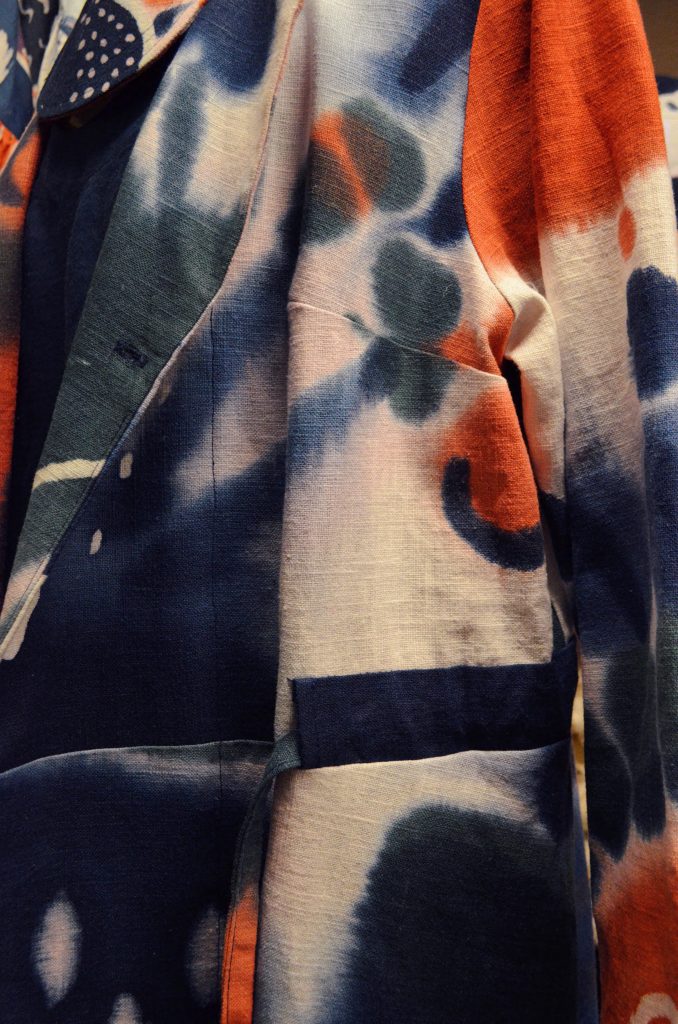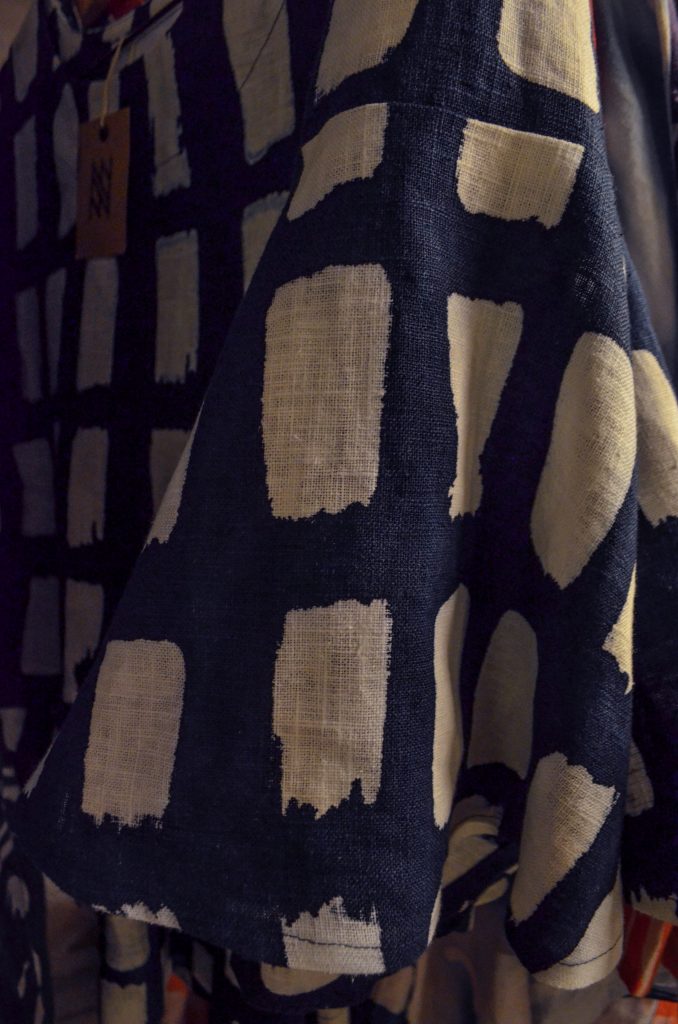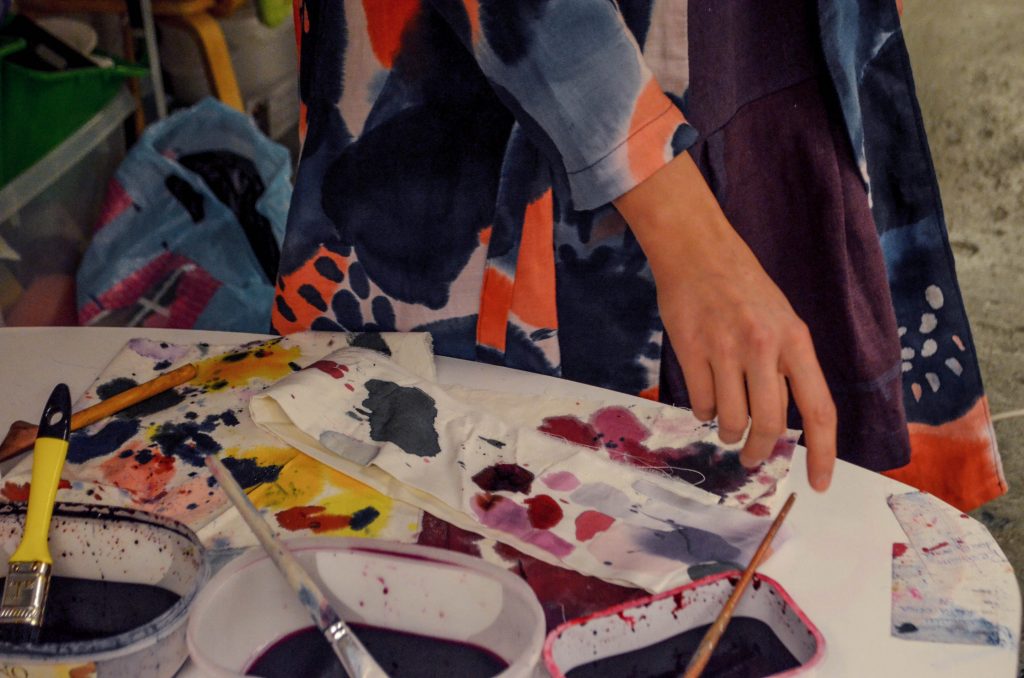Nokonen: The Power of Nettle
Aino has a humble dream; a studio with natural light, equipment that allows her to focus on creating garments and to be known by a small group of people. The founder of Helsinki-based Nokonen is educated in artisanship and setting up her own conscious brand has been her dream since she started studying sewing. Creating a brand that corresponded to her values was no easy feat but after extensive research and familiarising herself with her options, she started running Nokonen as a one woman show. Get to know the face behind the nettle clothing brand from Finland.
Working within handcrafts was always almost like destiny for Aino; “Craftsmanship is in my DNA and I’m not really interested in anything else so it was pretty clear that I would go straight to study to become an artisan”. After specialising in sewing, Aino went on to study fashion design at university and got a job as a designer at a Finnish textile company straight out of her degree. She has always been fond of walking her own path, so she quit after a few years to start planning her own brand. “I had dreamt for about 10 years that it would be lovely to someday do my own thing. Because I have worked at so many places, it’s nice that for once I can make without anyone telling me the framework for what to create”. Nokonen was born out of that desire to have an outlet for her imagination and create clothing with purpose and responsibility.
The name Nokonen comes from her name, Aino Kovalainen, by piecing together the syllables. It’s only a fortunate coincidence that the word is so close to the Finnish word for nettle (Nokkonen), with nettle being a cornerstone of what the brand stands for. Aino found the fabric after looking up modern alternatives to cotton. “It was pretty challenging because nettle isn’t really made anywhere yet, which is very odd. It’s ancient though, in the middle ages clothes were made from hand knitted nettle and the whole thing has since been completely forgotten”. Aino finds the feel of the fabric luxurious and the multitude of its properties very positive: “It is such a breathable and durable material and its naturally hygienic in that it repels dirt. Apparently it has also been used in wounds because it’s antibacterial. It keeps you warm when it’s cool and cool when it’s warm”.
It was when Aino found her love of batik that Nokonen got the look that they are now recognised for; “I was travelling in Asia and did batik for a week and that’s where my enthusiasm for textile art begun. In both of the schools we had had short courses of textile printing, painting and dyeing but my enthusiasm hadn’t really sprouted before that”. I was intrigued to find out how Aino conjures up her endless variations of colour and form. “I don’t like to imitate anybody and I always try to find my own way of doing things. I might pick up shapes and colours from art that I can start start developing with my own style”. Aino also finds traditional costumes from Africa and Asia inspiring. “I will think of things a lot and in the morning I just have to get to the fabric to do what I had in mind at night. I think having done a lot of artsy things since I was young has fed my imagination”.
I don’t really follow fashion, I’ve always marched to the beat of my own drum
Environmental values have always been important to Aino. “Creating something new is so lovely, but I couldn’t do what I do if I knew that I am harming the nature or people. There’s no sense in doing work like that. If you’re going to do this job it’s crucial to take those thing into consideration, at least for me” she explains. I asked her what the best thing about having a responsible and ethical brand was and she said that “the best thing is that I can stand behind what I do, that it hasn’t caused big damage to anyone”. She feels it’s of utter importance to spread the word about more sustainable practices. “I try to communicate to my customers to reduce single use consumption, and to invest in goods made sustainably and small scale. It isn’t that smart to go to fast fashion brands to buy five euro shirts in regards to the buyer, because you go there once and then you have a piece of garbage and you’re wondering what to do with is, because no one wants to buy used fast fashion garments. It’s not easy, but it pays off to have these lectures”.
Aino wants to keep creating versatile clothes with a seasonless model, where nothing ends up in the trash (even her off cuts are turned into scrunchies and caps). Her hopes for the future of Nokonen are simple; “to do well enough that I could get a studio with a window where I could paint in natural light. Having the equipment done to a T would allow me to focus on the creation. I would like Nokonen to be in people’s minds, but not in the sense that it would be a mainstream thing. The garments are still always going to be a one of a kind, unique thing that my customer base is never going to be huge”
I can’t say that I’m a sustainable brand if I am making from organic cotton



